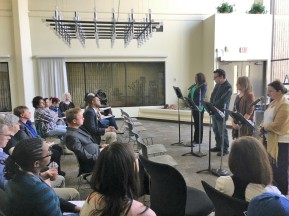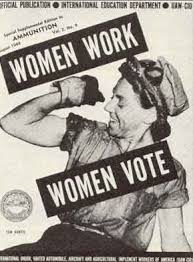
Book Reading
By Charles LaRocca
New poetry book “On the Line” written by De Anna Beachley shared excerpts from women from the suffragist movement who picketed the White House in 1917 for equal rights. A reading took place on campus during Women’s History Month to shed light on issues: past and present.
“On the Line” is a collection of poems crafted from members of the National Woman’s Party who participated in the protests. Their testimonies are full of real-life experiences from everyday working-class women who wanted rights to vote and to champion their own lives but were held back by society and government in America.
Professor Beachley, who teaches women’s studies at College of Southern Nevada, captured these stories beautifully while weaving a narrative throughout the text that crafted a compelling story.
“The issues that are talked about in the poems are still very relevant today and it shows the way in which things needs to change,” Beachley said.
The reading was held at CSN’s North Las Vegas campus on March 23. Beachley shared portions of her book and then a discussion ensued. Important issues were brought up: the past eras when women didn’t have rights to vote and present-day topics on inequality, objectification and sexism.
Women have been fighting for rights long before the pickets of 1917. The Women’s Rights Movement started in 1848 and didn’t achieve its goal of women getting the right to vote until 1920, a reminder that change can be a slow process.
For some like CSN history Professor Charlie Deitrich, the road to change lies in our history. “The past should be used as an example,” Deitrich said. “Only if we understand the past can we fix our future.”
The poems brought out several opinions from the audience. Some were incredibly moved and inspired while others were shocked.
CSN student Capricia Joelle was one of the most passionate at the gathering. “I came to this event so I can learn how I can help lead the next generation of women. Hearing what happened back then [in 1917] was inspiring,” Joelle said.
CSN psychology Instructor Andrea Brown commented on the struggle women endured who came before us. “The fight for change never stops and these poems are a reminder that [change] can happen,” Brown said.
A force of change is found in women becoming more vocal in politics.
“Activism needs to continue,” Beachley said. She suggests women exercise their right to vote consistently and collectively.




